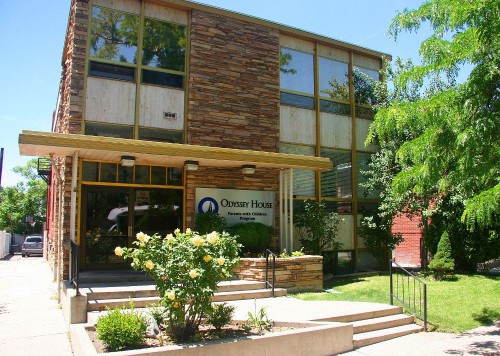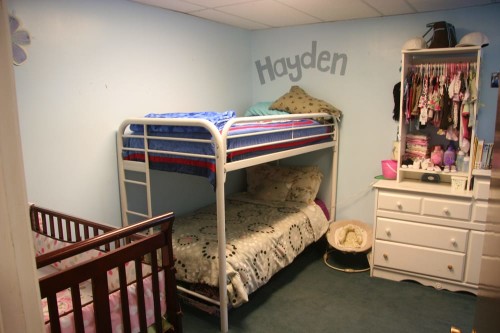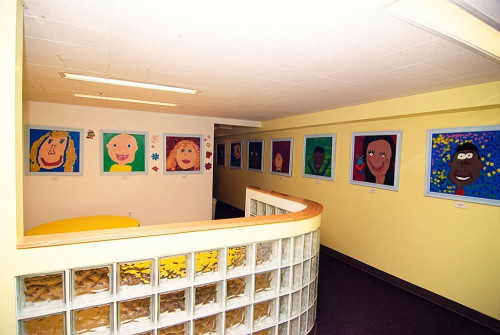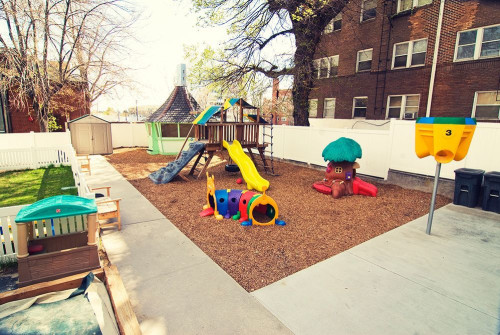






Odyssey House - Parents with Children Residential
Treatment Focus
This center treats substance use disorders and co-occurring mental health conditions. Your treatment plan addresses each condition at once with personalized, compassionate care for comprehensive healing.
Primary Level of Care
Offering intensive care with 24/7 monitoring, residential treatment is typically 30 days and can cover multiple levels of care. Length can range from 14 to 90 days typically.
Claimed
Recovery.com has connected directly with this treatment provider to validate the information in their profile.
Treatment Focus
This center treats substance use disorders and co-occurring mental health conditions. Your treatment plan addresses each condition at once with personalized, compassionate care for comprehensive healing.
Primary Level of Care
Offering intensive care with 24/7 monitoring, residential treatment is typically 30 days and can cover multiple levels of care. Length can range from 14 to 90 days typically.
Provider's Policy
We are in-network with most insurance carriers and we have programs to help offset insurance costs.
Odyssey House - Parents with Children Residential
Odyssey House - Parents with Children Residential
About Odyssey House - Parents with Children Residential
Odyssey House of Utah is a non-profit substance abuse program, with several locations offering specialized care for a wide demographic of individuals and families, treating addiction and co-occurring mental health since 1971.
Single Parents with Children
Odyssey House of Utah offers an addiction program, voted one of the most successful in the area as a 31 time Best of State winner. They offer male and female residential programs, tailored to single parents with children, offering a residential center for single moms or pregnant women and their children, and a residential facility for single fathers and their children.
Their single parents with children residential facilities emphasize keeping families together, offering a safe space for children to rebuild attachment and heal from trauma as their parent receives treatment from a specialized staff versed in evidence-based and best practice treatment models.
Clients go through a thorough initial assessment to develop individually tailored treatment plans that fit each family's unique set of circumstances. Their treatment team consists of certified addiction specialists and counselors, in addition to mental health professionals and psychiatric providers, available to treat clients struggling with substance misuse with co-occurring mental health conditions such as depression, anxiety, and trauma.
Comprehensive Support for Families
Clients take part in structured trauma-informed therapeutic programs, consisting of regularly scheduled individual, group, and family therapy sessions. While parents engage in treatment, children receive childcare from specially licensed staff. School-aged children attend a local elementary school during the day and receive daycare services in the afternoon.
Odyssey House accepts families with children as young as newborn and up to 11 years old. On average, clients are in treatment at the Odyssey House for 6-9 months, and upon successful completion, receive ongoing support to maintain long-term sobriety and live stable and independent lives.
Their programs reinforce healthy routines and structure that include cooking, laundry, maintaining a clean space, and various other important life skills. Additionally, their program has a strong focus on developing and promoting parenting skills. Parents engage in specialized educational sessions, vocational preparations, physical fitness, and more. Children in the program partake in a variety of activities to build strong, healthy, and trusting relationships with their parents, combined with intensive family therapy and establishing structure and routine.
Robust Aftercare
Odyssey House provides a full continuum of care, offering outpatient services, sober living, housing assistance, and a supportive alumni community. Parents and children may continue treatment through outpatient therapy programs, with adult residential programs available to serve families who have more than one caregiver struggling with addiction. Medical care and medication-assisted treatment (MAT) may be offered in coordination with their Martindale Clinic location. Their father’s with children program, established in 2005, is the only residential facility in Utah servicing fathers and their children.
Inclusive Quality Care
Odyssey House of Utah strives to empower individuals to heal and build better lives as the largest comprehensive addiction program in the state. Their dedication to connect every individual to treatment fostered their ability to provide low-cost, quality services. They are a Joint Commission accredited facility that accepts Medicaid and most major insurance providers.

Center Overview
Treatment Focus
This center treats substance use disorders and co-occurring mental health conditions. Your treatment plan addresses each condition at once with personalized, compassionate care for comprehensive healing.
Joint Commission Accredited
The Joint Commission accreditation is a voluntary, objective process that evaluates and accredits healthcare organizations (like treatment centers) based on performance standards designed to improve quality and safety for patients. To be accredited means the treatment center has been found to meet the Commission's standards for quality and safety in patient care.
Insurance Accepted
Cash Pay Rates
Estimated Cash Pay Rate
Center pricing can vary based on program and length of stay. Contact the center for more information. Recovery.com strives for price transparency so you can make an informed decision.
Levels of Care






Your Care Options
Specializations
Co-Occurring Disorders
A person with multiple mental health diagnoses, such as addiction and depression, has co-occurring disorders also called dual diagnosis.
Drug Addiction
Drug addiction is the excessive and repetitive use of substances, despite harmful consequences to a person's life, health, and relationships.
Family Therapy
Family therapy addresses group dynamics within a family system, with a focus on improving communication and interrupting unhealthy relationship patterns.
Who We Treat
Men and Women
Men and women attend treatment for addiction in a co-ed setting, going to therapy groups together to share experiences, struggles, and successes.
Pregnant Women
Addiction and mental health treatment meets the clinical and psychological needs of pregnant women, ensuring they receive optimal care in all areas.
Approaches
Evidence-Based
A combination of scientifically rooted therapies and treatments make up evidence-based care, defined by their measured and proven results.
Family Involvement
Providers involve family in the treatment of their loved one through family therapy, visits, or both–because addiction is a family disease.
Therapies
1-on-1 Counseling
Patient and therapist meet 1-on-1 to work through difficult emotions and behavioral challenges in a personal, private setting.
Trauma-Specific Therapy
This form of talk therapy addresses any childhood trauma at the root of a patient's current diagnosis.
Rational Emotive Behavior Therapy
A type of cognitive therapy that identifies negative self-defeating thoughts and behaviors, rewriting beliefs to be positive, empowering, and present.
Eye Movement Therapy (EMDR)
Lateral, guided eye movements help reduce the emotional reactions of retelling and reprocessing trauma, allowing intense feelings to dissipate.
Family Therapy
Family therapy addresses group dynamics within a family system, with a focus on improving communication and interrupting unhealthy relationship patterns.
Life Skills
Teaching life skills like cooking, cleaning, clear communication, and even basic math provides a strong foundation for continued recovery.
Motivational Interviewing
Based on the idea that motivation to change comes from within, providers use a conversational framework to discover personalized methods for change.
Recreation Therapy
In recreation therapy, recovery can be joyful. Patients practice social skills and work through emotional triggers by engaging in fun activities.
Conditions We Treat
Anxiety
Anxiety is a common mental health condition that can include excessive worry, panic attacks, physical tension, and increased blood pressure.
Depression
Symptoms of depression may include fatigue, a sense of numbness, and loss of interest in activities. This condition can range from mild to severe.
Post Traumatic Stress Disorder
PTSD is a long-term mental health issue caused by a disturbing event or events. Symptoms include anxiety, dissociation, flashbacks, and intrusive thoughts.
Trauma
Some traumatic events are so disturbing that they cause long-term mental health problems. Those ongoing issues can also be referred to as "trauma."
Substances We Treat
Alcohol
Using alcohol as a coping mechanism, or drinking excessively throughout the week, signals an alcohol use disorder.
Benzodiazepines
Benzodiazepines are prescribed to treat anxiety and sleep issues. They are highly habit forming, and their abuse can cause mood changes and poor judgement.
Co-Occurring Disorders
A person with multiple mental health diagnoses, such as addiction and depression, has co-occurring disorders also called dual diagnosis.
Cocaine
Cocaine is a stimulant with euphoric effects. Agitation, muscle ticks, psychosis, and heart issues are common symptoms of cocaine abuse.
Drug Addiction
Drug addiction is the excessive and repetitive use of substances, despite harmful consequences to a person's life, health, and relationships.
Heroin
Heroin is a highly addictive and illegal opioid. It can cause insomnia, collapsed veins, heart issues, and additional mental health issues.
Psychedelics
Hallucinogenic drugs—like LSD—cause euphoria and increased sensory experiences. When abused, they can lead to depression and psychosis.
Methamphetamine
Methamphetamine, or meth, increases energy, agitation, and paranoia. Long-term use can result in severe physical and mental health issues.
Opioids
Opioids produce pain-relief and euphoria, which can lead to addiction. This class of drugs includes prescribed medication and the illegal drug heroin.
Languages
Aftercare
Care Designed for Your Needs
Personal Amenities
Amenities
Special Considerations
Family Member Stays
Treatment providers welcome family members to stay on-site to better the experience and success of patients and their families as a whole.





